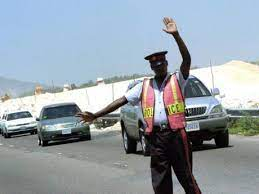The procurement of 600 body cameras over the next two months is expected to bolster the police force’s evidence-gathering capacity and help challenge dubious claims of innocence from motorists ticketed for traffic violations.
That declaration Monday by State Minister Zavia Mayne is another signal that the Jamaica Constabulary Force (JCF) intends to crack down on breaches of the new Road Traffic Act, which takes effect February 1.
Complementing the implementation of e-ticketing devices, Mayne said that body-worn cameras would likely limit the number of matters presented to court, along with false recounts of traffic stop interactions.
“This will form part of the evidence for matters that will end up in court, and that is important, because a lot of times people make up stories on the police all because the police are seeking to enforce the law,” the junior national security minister said during his keynote address to cops at the start of a two-day training conference at the National Police College of Jamaica in Twickenham Park, St Catherine.
“When all our police are fitted with body cameras, we know that nobody can’t make up no duppy story again, because everything that transpires is recorded and transmitted and forms part of the corroboration and the corroborating material that you, as the police, will put forward during the prosecution of these traffic breaches.”
There are currently 400 body-worn cameras used in the police force.
Mayne acknowledged that the cameras were insufficient for the full complement of the approximately 12,000-strong police force but said that “a large portion” of personnel, especially those attached to the Traffic Division, have been outfitted with devices.
Mayne also believes that widening the use of bodycams will help to restore trust and confidence in the operations of the police force.
Earlier this month, the JCF received 750 handsets and 750 printers to assist with the efficient handling of road traffic offences. In the pilot stage of the Traffic Ticket Management System (TTMS), which will soon subsume the paper-based system of ticketing, 70 machines were issued.
Citing February 1 as “a new day dawning”, Mayne said that the Government should be credited with wiping the slate clean for compliant motorists by not penalising them “with the shortcomings of an old system”.
After today’s deadline, compliant motorists will be amnestied from demerit points stretching back to February 2, 2018, and all infractions committed on February 1, 2018 or earlier will be cleared from their record.
He defended the Holness administration’s decision to press ahead with the implementation of the new law despite protest from the Opposition.
“You had time. It begins with the first 21 days, so don’t make it seem as if you’re just being given time to pay traffic ticket,” he said, referring to traffic offenders.
“It is ignoring these less serious offences such as breaching the road code that leads to the ultimate breakdown of order within our society.”
Commissioner of Police Major General Antony Anderson said that the constabulary is seeking to ramp up its public education campaign on this new legislation – evident, perhaps, in its social-media posts on Monday to motorcyclists about the $10,000 fines for stunts and muffler dismantlement linked to noise pollution.
Cops will also be armed with a “a rough and ready guide” on the most common offences.
Anderson stated that while a reduction in ticket issuance was not anticipated in the short term, he expected violations to decline over time.
“In the early stages, I suspect that people will still (offend), because of an ongoing culture, you’ll have maybe an increase in probably the number of traffic tickets, but over time we’ll expect them to go down again as people become more compliant with the rules of the road,” he said.
The more than 720,000 tickets issued in 2022 represented an approximately 44 per cent increase on the 500,000 generated in the prior year. Approximately 70,000, or nearly 10 per cent of the 720,000 tickets issued in 2022 were machine-generated.

